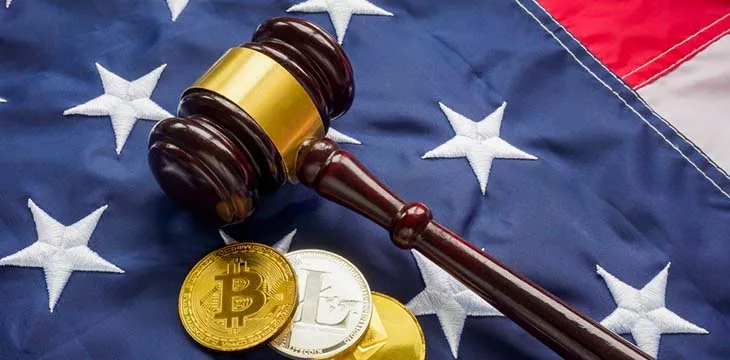|
Getting your Trinity Audio player ready...
|
A bipartisan group of U.S. lawmakers urged Securities and Exchange Commission (SEC) Chair Gary Gensler to approve the listing of spot-bitcoin exchange-traded products (ETPs), citing the recent Grayscale decision as the reason.
The lawmakers wrote to SEC Chair Gary Gensler on Tuesday, urging him to allow the listing of spot bitcoin ETPs.
Representatives Mike Flood (R-Neb.), Tom Emmer (R-Minn.), Ritchie Torres (D-N.Y.), and Wiley Nickel (D-N.C.) appealed to the SEC Chair to “not continue to discriminate against spot bitcoin exchange-traded products.”
“Congress has a duty to ensure the SEC approves investment products that meet the requirements set out by Congress,” the letter argued. “To that end, we urge you to approve the listing of spot-bitcoin ETPs immediately.”
The group pointed to the recent ruling by the U.S. Court of Appeals for the District of Columbia, where three judges upheld the digital currency asset management company Grayscale’s position that in denying its application for a bitcoin ETP without appropriate reasoning, the SEC had violated the Administrative Procedures Act.
“Following the Court of Appeals’ decision, there is no reason to continue to deny such applications under inconsistent and discriminatory standards,” said the letter, which also argued that a regulated spot bitcoin ETP would increase investor protection by making access to bitcoin safer and more transparent.
Grayscale case
Grayscale filed its ETP application in June 2022 by the NYSE Arca (NASDAQ: ZVV) exchange. The listing of a new product by any exchange requires it to modify its rules, and any rule change must be approved by the SEC under the Securities Exchange Act.
The SEC declined the Grayscale application based on a provision of the Act that states any proposed rule change must be “designed to prevent fraudulent and manipulative acts and practices, to promote just and equitable principles of trade,” and “to protect investors and the public interest.”
The SEC’s stance was that the BTC spot market is not sufficiently resistant to fraud and manipulation.
Grayscale countered that the SEC’s approval of ETPs holding BTC futures, as opposed to holding BTC directly, was evidence that the SEC’s rejection was arbitrary and unlawful. The SEC responded by suggesting that futures ETPs were approved on the basis that they are traded on the more secure Chicago Mercantile Exchange, which would not be the case for the spot market BTC ETPs.
However, the Appeals Court decided the SEC’s argument was insufficient and, in August, ordered the regulator to reconsider its decision denying Grayscale’s application for a BTC ETP.
“The denial of Grayscale’s proposal was arbitrary and capricious because the Commission failed to explain its different treatment of similar products. We, therefore, grant Grayscale’s petition and vacate the order,” said the ruling.
The three judges found that Grayscale had successfully established that its proposed ETP was ‘materially similar, across relevant regulatory factors’ to the ETPs holding BTC futures already approved by the SEC. As a result, the rejection violated the Administrative Procedure Act (APA), which allows the court to set aside regulatory action that is “arbitrary, capricious, an abuse of discretion, or otherwise not in accordance with the law.”
Despite Tuesday’s letter from lawmakers suggesting that this ruling means Grayscale’s BTC ETP should now be approved, this is not actually what the ruling said. The judges only ruled that the SEC had not followed correct procedures to determine whether the new products could be permitted; they did not, as some are trying to suggest, rule that BTC ETP, therefore, must be approved.
The decision still lies with the SEC, and it remains up to the regulator to review the decision and either approve the BTC ETP or provide a more in-depth reasoning as to why it is denying Grayscale.
Watch: Regulatory compliance for blockchain & digital assets

 02-28-2026
02-28-2026 




